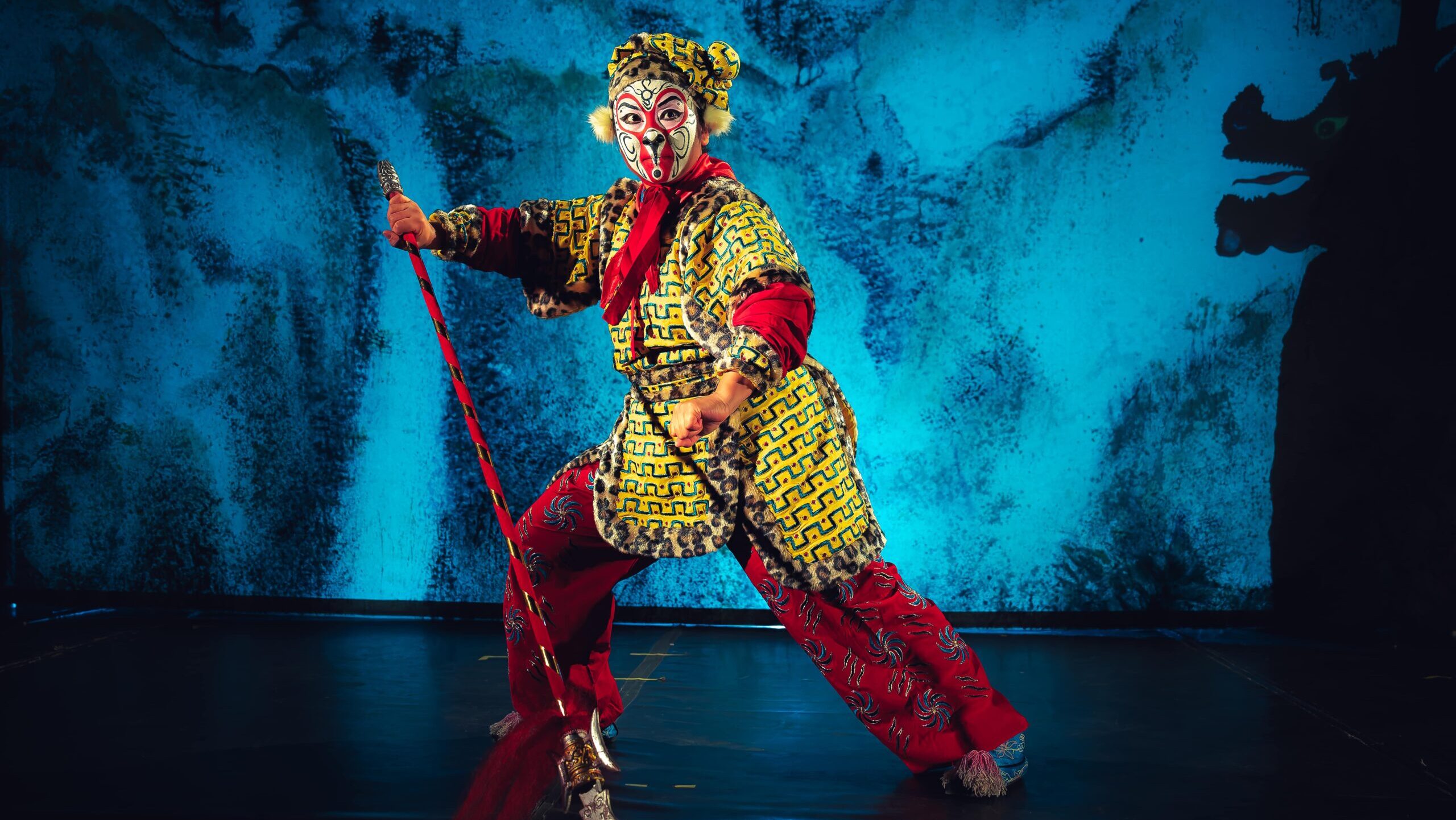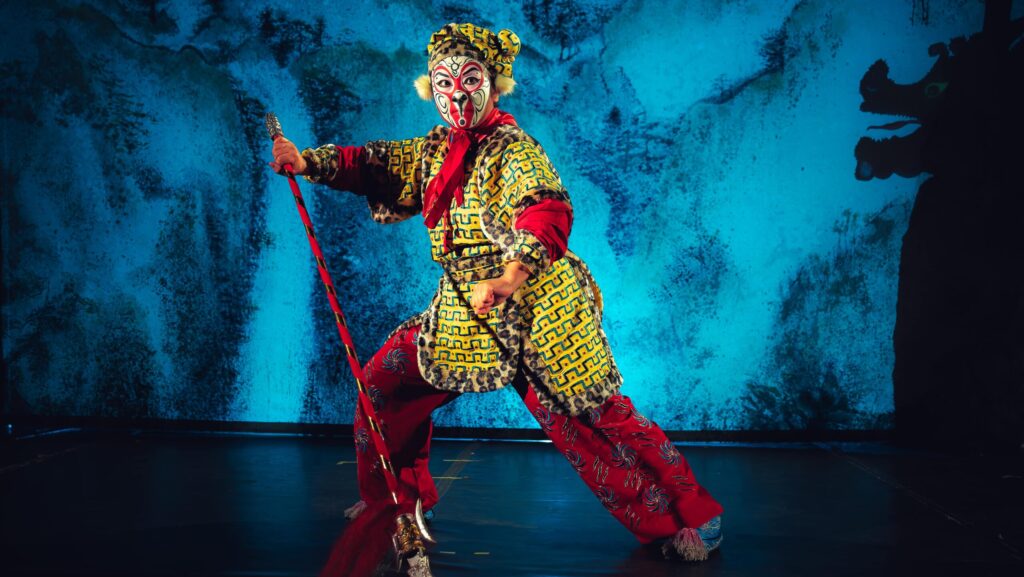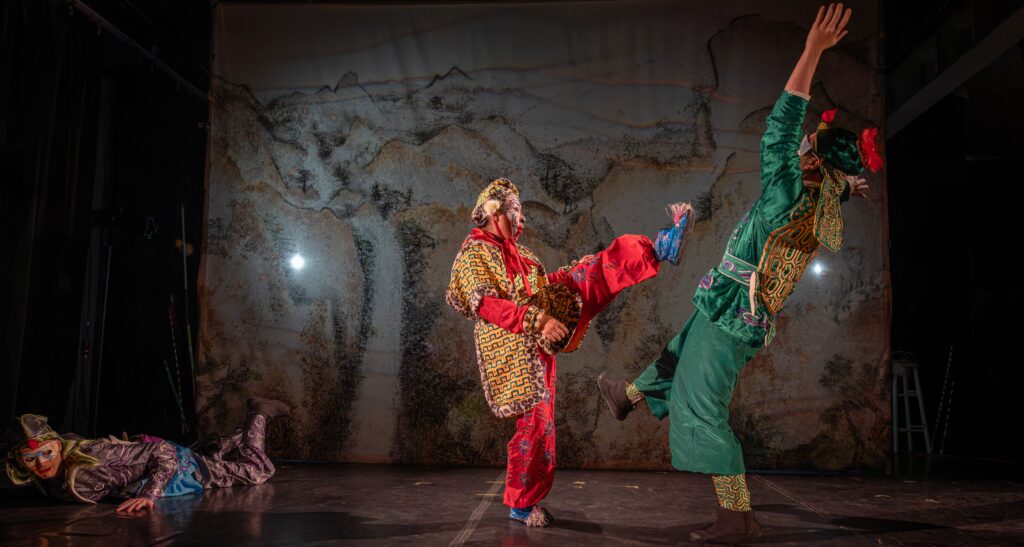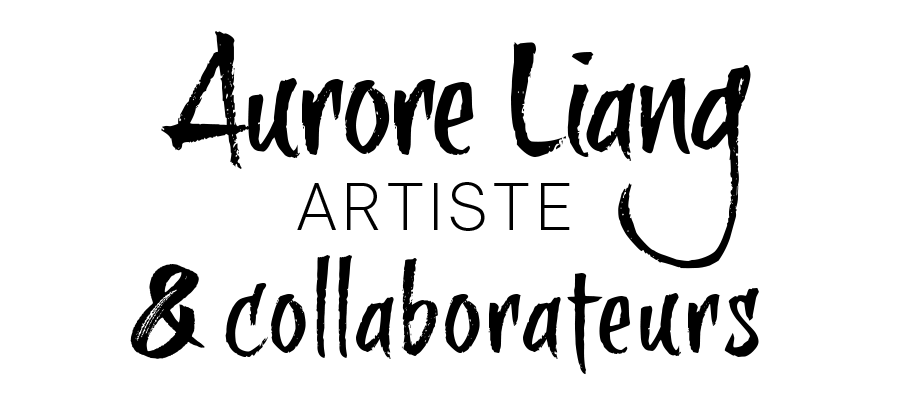
31 Dec Le Devoir Newspaper features us!

The story is in Chinese, and the interpretation is in French. Created in 2024, the play The Monkey King has been performed three times in Quebec, and since then, the 2025 performance schedule has been deadlocked. Aurore Liang, the creator of this work that blends the arts from here and elsewhere, notes that behind all the talk of openness to diversity, a glass ceiling awaits artists who try to blend cultures.
This time, the actors are recognizable in a Villeray rehearsal space. Costumes and make-up camouflaged these performers from head to toe during the play's first Montreal performance a few days earlier. Aurore Liang laments that, despite more than a year's preparation, the team of twenty or so people from six different countries has no idea when they'll be able to return to the stage. "We know what we are. We know we're good. I can hear the applause on the Quebec side, and I can hear the applause on the Chinese side. It shows that everyone loves our work. We've made our own sauce.”
In this play with an Oriental commedia dell’arte feel, the playwright plays the role of narrator. She declaims a classic of Chinese literature in sustained French for over an hour, with shadow puppets and a “guzheng” harp as background music. She laments that producers or funding bodies have not embraced this molten art, perhaps because of a misunderstood professionalism.
"In the larger environment, we say we support diversity and immigration, but for us, when we get to the microenvironment, people wonder: 'Can I fill the room? Will people like it? Do the Chinese speak French? Can we understand each other? We haven't understood anything about Chinese culture for centuries and centuries. It's so big. Can the team finally understand it?"

The “big challenge” of mixing genres
French is not Ms. Liang's first language. She has no training in theatre. A rare bird in a diaspora more traditionally destined for medicine, law, engineering or liberal professions, she decided to team up with Quebec artisans to bring her two cultures together.
She enlisted the help of an author to adapt the text, and then of Concordia University acting professor Robert Reid to direct. Reid admits that, at first, he needed someone to whisper in his ear the cultural references he needed to understand what he was watching. “I'm a really good person who can help people understand [Chinese theatre], because I was like anyone who didn't like it,” he says.
His own journey took him to China, to Beijing itself, to learn about these mysterious Oriental codes. The same goes for the play's lead actress, Michelle Jiang, who is fully trained in Beijing opera. Making this distant world accessible to a local audience was “a big challenge” for Aurore Liang.
"We love tradition. We want to receive a certain cultural heritage, but at the same time we want to add a touch of modernity, to add what we understand, [we] people of the day."
She claims to be the only team that has staged this type of show in Quebec. There is, however, Shen Dance Yun company, which promotes traditional Chinese art. This latter troupe, based in the United States, shies away from the mix of genres that could interest both Quebec audiences and members of the Chinese diaspora," says the actress and director.
Sino-Quebecers make and consume their own cultural products, but in their own corner, points out the all-rounder. "There are some [plays] that exist in the Chinese community. Sometimes their stuff isn't so professional. Or it's community-based, it's between the community."
This story is supported by l’Initiative de journalisme local, funded by the Government of Canada.

